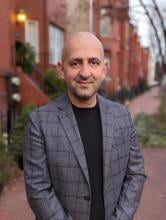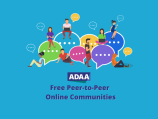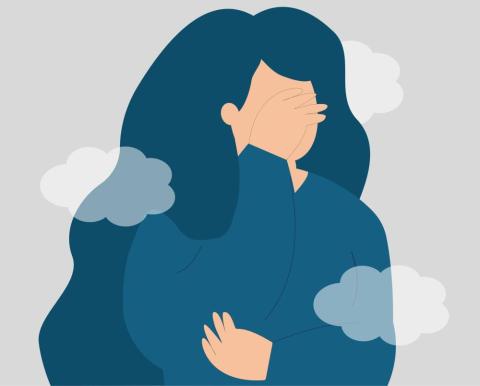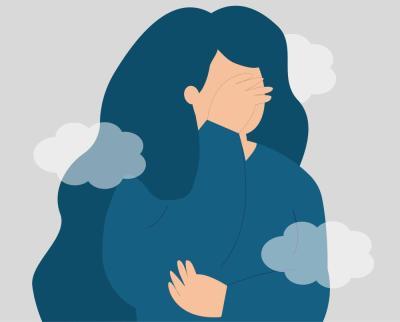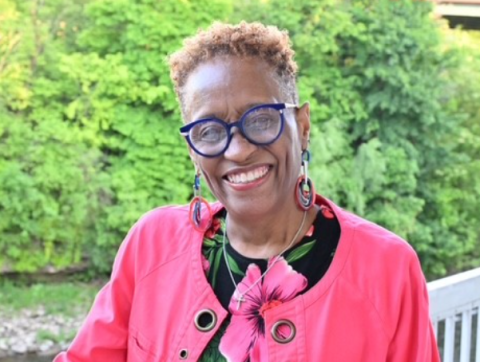We Can Be Thankful In Times of Anxiety, Uncertainty and Tragic News
We Can Be Thankful In Times of Anxiety, Uncertainty and Tragic News

Catastrophes, natural disasters, war, sickness, violence, and various forms of abuse exist worldwide. They happen daily. They have for centuries and probably will for centuries more. Unfortunately they are part of human existence. What has changed a lot in the past few decades and certainly in the 21st century is the way in which we have immediate, constant, and extensive coverage of what is happening in the world. And often the coverage is bad. Or rather, bad news is selected to be shown, read, and reported on over and over again. Until the next bad thing happens and we move on to that.
What is also a part of human nature is anxiety, fear, distress, and feelings of guilt, helplessness, and anger. It’s natural for us to feel these emotions, particularly when we see, hear, or read – in real time - disturbing images and heartbreaking stories of grief, suffering and trauma. What shouldn’t be natural, however, is allowing news, social media, and other forms of content to dictate what we feel, think and how we react to their coverage for ratings, financial gain, or other reason. Yes, these tragic stories need to be reported, the information has to be disseminated, and the press are essential in relaying the news back to us because we can’t know everything and be everywhere in the world, but we can choose when and how much and which coverage we want or need at any given time.
Trauma psychiatrist and researcher Arash Javanbakht, MD, says disastrous news gets delivered in a highly emotional way – often on purpose – and while having strong feelings for the victims of war, floods, earthquakes, mass shootings or horrific accidents is justified, we also have to be logical and in tune with our own emotional processes when interpreting the news.
Be Informed, Be Empathetic, Be You - But Don’t Be Manipulated
Watching or reading about others experiencing life-threatening, unjust, and/or inhumane conditions exposes us to their trauma. While we ourselves are not traumatized, says the ADAA member and Detroit-based director of the Stress, Trauma and Anxiety Research Clinic (STARC) at Wayne State University, it does have a negative effect and it can be stressful for us.
“It is important for me to know, to be informed,” Dr. Javanbakht tells ADAA, “but my pain is not going to reduce someone else’s. My suffering, my lack of joy or inability to have fun is not going to benefit someone I don’t know suffering through a war or disaster.”
That is not to say we do nothing. But holding on to guilt and shame or denying yourself happiness or good times isn’t the answer. Working with trauma survivors, refugees, and first responders, he tells his patients that, if anything, they have a “higher responsibility now to enjoy and create a productive life.”
His advice holds true for those of us consuming the news and feeling awful about it. What we often digest in terms of information is what various media outlets want us to chew. But we barely have time to let it settle before there’s more disturbing news elsewhere, about other people doing or having done to them atrocious things that will make us feel intensely one way or another again.
“It’s not malicious intent but the media is intense, even the emotional way news is delivered, and which news and for how long. They’ve learned that negative emotions glue us to the TV or make us scroll and click, so that is what they deliver most. They dictate to us what is and isn’t important,” Dr. Javanbakht explained, likening the news’ ever-changing focus to a moving beam of light.
“It’s like a laser pointer for a cat. So it is extremely important to have our own logic because we don’t want to be manipulated. One suggestion is to read the news or listen or watch reporters who are more emotionally composed when delivering news.”
Channel That Energy for Good
In addition to being more proactive in deciding where, when, how, and for how long you get your news, the trauma expert recommends taking negative feelings and doing something good with them. That might look different for different people but since, as Dr. Javanbakht points out, “We are going to feel those high-energy emotions like anger, fear, frustration, and helplessness, and energy can be cultivated, why not channel it into activities that help us feel more in control, feel less helpless and feel like we can play a positive part in humanity?”
For example, he suggests volunteering, helping the homeless, working with refugee children, or engaging in some sort of activism with a purpose. Start a fundraiser or donate to a cause, call or write to community leaders or policy makers to push them to have more reasonable and logical policies. If the feelings are too overwhelming, speak to someone – a friend, a family member or even a therapist.
In his most recent book, Afraid: Understanding the Purpose of Fear and Harnessing the Power of Anxiety, the ADAA member explains in much more detail how media and politics have heightened our anxieties but it’s our responsibility as consumers and constituents to reduce the impact they have on us. Social media can be a conduit for good just as much as a force for bad.
“Anyone with a phone can be a reporter today,” Dr. Javanbakht said, stressing the importance of good judgment, logic and caution. The scariest, meanest, most threatening story isn’t always the best story.
It's Ok to Express Relief, Feel Gratitude
It’s hard not to address the elephant in the room when digesting the news these days. We see graphic and horrifying images and videos, listen to distressing audio clips and read dismal lines of reports and commentary about people suffering in some other part of the world or even a few states away. There is a sense of relief that it’s not me. It’s not my family or friends. It’s not in my neighborhood or community.
According to Dr. Javanbakht, that is normal. “We can feel relieved just as much as we can feel survivor’s guilt,” he says. “Someone else is suffering, starving, doesn’t have food or shelter, has lost loved ones so how can I go and enjoy Thanksgiving?”
It’s a valid point and way to feel, but so is feeling comfort that you are not going through that trauma. And it’s ok to be thankful that you are safe and happy and not under physical or mental duress.
“It’s important to have a realistic understanding of the world – we know it can be unfair, unkind, unsafe,” Dr. Javanbakht told ADAA. “Sometimes you might worry that if you are not feeling terrible about something horrific that you are an ignorant person. But then your approach to this is to be practical.”
At the end of the day, we are humans. We are going to suffer, we are going to empathize, we are going to get angry and sad and feel distress but we want to minimize that suffering in ourselves because it is not going to help someone else, he says.
Instead, he advises, we can transfer our knowledge and skills, what we are learning about trauma to people who are suffering and not just today but over the next few years and decades. Because, as he says, wars and other tragedies do eventually end, but their impact can last for generations.
“In the midst of so much suffering, it is even more crucial for happiness to still exist and be disseminated. And that can start with you. Be happy and share it with those who might not be as fortunate or privileged,” Dr. Javanbakht says.

